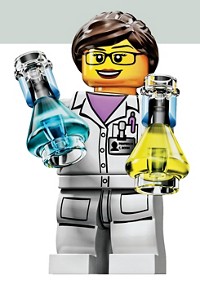Advertisement
Grab your lab coat. Let's get started
Welcome!
Welcome!
Create an account below to get 6 C&EN articles per month, receive newsletters and more - all free.
It seems this is your first time logging in online. Please enter the following information to continue.
As an ACS member you automatically get access to this site. All we need is few more details to create your reading experience.
Not you? Sign in with a different account.
Not you? Sign in with a different account.
ERROR 1
ERROR 1
ERROR 2
ERROR 2
ERROR 2
ERROR 2
ERROR 2
Password and Confirm password must match.
If you have an ACS member number, please enter it here so we can link this account to your membership. (optional)
ERROR 2
ACS values your privacy. By submitting your information, you are gaining access to C&EN and subscribing to our weekly newsletter. We use the information you provide to make your reading experience better, and we will never sell your data to third party members.
Science Communication
Newscripts
Linguistic synthesis and a crime against the colon
by Matt Davenport
November 18, 2018
| A version of this story appeared in
Volume 96, Issue 46
Chemists have a way with words

Given the propensity of us media folks to glom on to novel vocabulary, it may surprise you to learn that many of us are taught that invented words are garish.
Yet the more forbidden the fruit, the more scrumtrulescent it is. Just think of the reckless abandon we’ve shown in the age of the interwebs, decorating our prose with tchotchkes such as “hangry,”“Snowmageddon,” and “Bennifer.”
But lest you think that this column is headed toward some sort of apology, know that the Newscripts gang’s only regret is that we haven’t had more opportunities to dispense fantastical chemistry newspeak. Not to discount the central science’s contributions to the lexicon, but chemistry’s invented terms tend to be exceptionally practical and straight faced (looking at you, “surfactant”).
But we have reason to believe this may be changing thanks to messages we recently received from Paul Spurr, a chemist who works in process research and development at Roche in Switzerland. As an example, Spurr’s team has often dealt with partially dissolved or precipitated solids. Simply referring to these as partial solutions or partial suspensions felt inadequate, so the team coined the word “solensions.”
“Considering the persistent edutaining flexibility of reporting in the English language, particularly the U.S. variety, we consider this expression rather aptly captures the nature of the condition between a total solution—material fully dissolved—and a full suspension—material totally undissolved,” Spurr explains.
Another delightful contribution from the group is a reaction process called “bfwotolysis,” derived from BFWOT, “an almost onomatopoeic acronym that often befittingly identifies an entire extended effort as a big fat waste of time,” Spurr tells Newscripts. But our favorite has to be “psychochemotaxis,” which Spurr defines as chemists’ practice of “staring transfixed into reaction flasks in the vague hope that their focused gaze will somehow telepathically encourage new chemistry to progress as desired.”
A crime most bowel

There are times, however, when extant language is so completely fitting for a situation that it can’t help but seize society’s attention and imagination. We saw one such occasion a few weeks ago in Kansas City, Mo.
Members of a colon cancer awareness group left their inflatable colon in the back of a truck on Oct. 18 as they prepared for an upcoming event.Sometime overnight, the colon was stolen.
Although the large intestine remained at large for days, things worked out in the end. Thanks to a tip, the Kansas City police discovered the AWOL organ in an abandoned house on Oct. 29. And the story inspired a hashtag—#StolenColon—that exploded on social and conventional media. Famed journalist Katie Couric tweeted about it. Comedian Stephen Colbert talked about it on his late-night talk show. And now, here we are, writing about it in the hallowed pages of Chemical & Engineering News.
Advertisement
The theft and recovery of this 3-meter-long inflatable colon proved so valuable to the Colon Cancer Coalition’s mission, which is to spread awareness of colon cancer, that some suspected it was an inside job (the group denied involvement in a New York Times story). News of the #StolenColon reached 186 million people worldwide, according to the coalition, which purchased the inflatable as an educational tool in 2017. The group also raised more than $11,000 to replace the $4,000 colon in the wake of the theft, although it never wavered in its desire to be reunited with the original.
“We want to hear all the stories it has to tell, then give it a bath, provide any needed repairs, and put it back on the road to raise even more awareness about colon cancer screening and save more lives!” the group wrote on its website.
As of Nov. 6, the Kansas City Police Department had no updates regarding suspects, but Detective William Richter offered some advice for our readers. “Nowadays, people are taking everything,” he says. “Don’t leave your valuables where people can see them.”
Matt Davenport wrote this week’s column. Please send comments and suggestions to newscripts@acs.org.



Join the conversation
Contact the reporter
Submit a Letter to the Editor for publication
Engage with us on Twitter